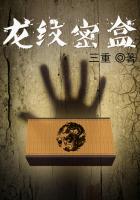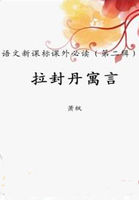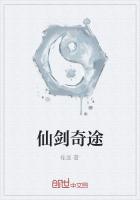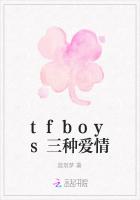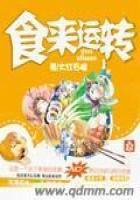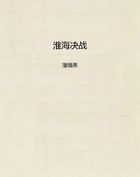If Becket was narrow, he no doubt was conscientious. He may have been ambitious of wielding unlimited spiritual authority. But it should be noted that, had he not quarrelled with the King, he could have been both archbishop and chancellor, and in that double capacity wielded more power; and had he been disposed to serve his royal master, had he been more gentle, the King might not have pushed out his policy of crippling the spiritual courts,--might have waived, delayed, or made concessions. But now these two great potentates were in open opposition, and a deadly warfare was at hand. It is this fight which gives to Becket all his historical importance. It is not for me to settle the merits of the case, if I could, only to describe the battle. The lawyers would probably take one side, and Catholic priests would take the other, and perhaps all high-churchmen. Even men like Mr. Froude and Mr.
Freeman, both very learned and able, are totally at issue, not merely as to the merits of the case, but even as to the facts. Mr.
Froude seems to hate Becket and all other churchmen as much as Mr.
Freeman loves them. I think one reason why Mr. Froude exalts so highly Henry VIII. is because he put his foot on the clergy and took away their revenues. But with the war of partisans I have nothing to do, except the war between Henry II. and Thomas Becket.
This war waxed hot when a second council of bishops and barons was assembled at Clarendon, near Winchester, to give their assent to certain resolutions which the King's judges had prepared in reference to the questions at issue, and other things tending to increase the royal authority. They are called in history "The Constitutions of Clarendon." The gist and substance of them were, that during the vacancy of any bishopric or abbey of royal foundation, the estates were to be in the custody of the Crown;that all disputes between laymen and clergymen should be tried in the civil courts; that clergymen accused of crime should, if the judges decided, be tried in the King's court, and, if found guilty, be handed over to the secular arm for punishment; that no officer or tenant of the King should be excommunicated without the King's consent; that no peasant's son should be ordained without permission of his feudal lord; that great ecclesiastical personages should not leave the kingdom without the King's consent.
"Anybody must see that these articles were nothing more nor less than the surrender of the most important and vital privileges of the Church into the hands of the King: not merely her properties, but her liberties; even a surrender of the only weapon with which she defended herself in extreme cases,--that of excommunication."It was the virtual confiscation of the Church in favor of an aggressive and unscrupulous monarch. Could we expect Becket to sign such an agreement, to part with his powers, to betray the Church of which he was the first dignitary in England? When have men parted with their privileges, except upon compulsion? He never would have given up his prerogatives; he never meant for a moment to do so. He was not the man for such a base submission. Yet he was so worried and threatened by the King, who had taken away from him the government of the Prince, his son, and the custody of certain castles; he was so importuned by the bishops themselves, for fear that the peace of the country would be endangered,--that in a weak moment he promised to sign the articles, reserving this phrase: "Saving the honor of his order." With this reservation, he thought he could sign the agreement, for he could include under such a phrase whatever he pleased.
But when really called to fulfil his promise and sign with his own hand those constitutions, he wavered. He burst out in passionate self-reproaches for having made a promise so fatal to his position.
"Never, never!" he said; "I will never do it so long as breath is in my body." In his repentance he mortified himself with new self-expiations. He suspended himself from the service of the altar.
He was overwhelmed with grief, shame, rage, and penitence. He resolved he would not yield up the privileges of his order, come what might,--not even if the Pope gave him authority to sign.
The dejected and humbled metropolitan advanced to the royal throne with downcast eye but unfaltering voice; accused himself of weakness and folly, and firmly refused to sign the articles.
"Miserable wretch that I am," cried he, with bitter tears coursing down his cheeks, "I see the English Church enslaved, in punishment for my sins. But it is all right. I was taken from the court, not the cloister, to fill this station; from the palace of Caesar, not the school of the Saviour. I was a feeder of birds, but suddenly made a feeder of men; a patron of stage-players, a follower of hounds, and I became a shepherd over so many souls. Surely I am rightly abandoned by God."He then took his departure for Canterbury, but was soon summoned to a grand council at Northampton, to answer serious charges. He was called to account for the sums he had spent as chancellor, and for various alleged injustices. He was found guilty by a court controlled by the King, and sentenced to pay a heavy fine, which he paid. The next day new charges were preferred, and he was condemned to a still heavier fine, which he was unable to pay; but he found sureties. On the next day still heavier charges were made, and new fines inflicted, which would have embarrassed the temporalities of his See. He now perceived that the King was bent on his ruin; that the more he yielded the more he would be expected to yield. He therefore resolved to yield no further, but to stand on his rights.

